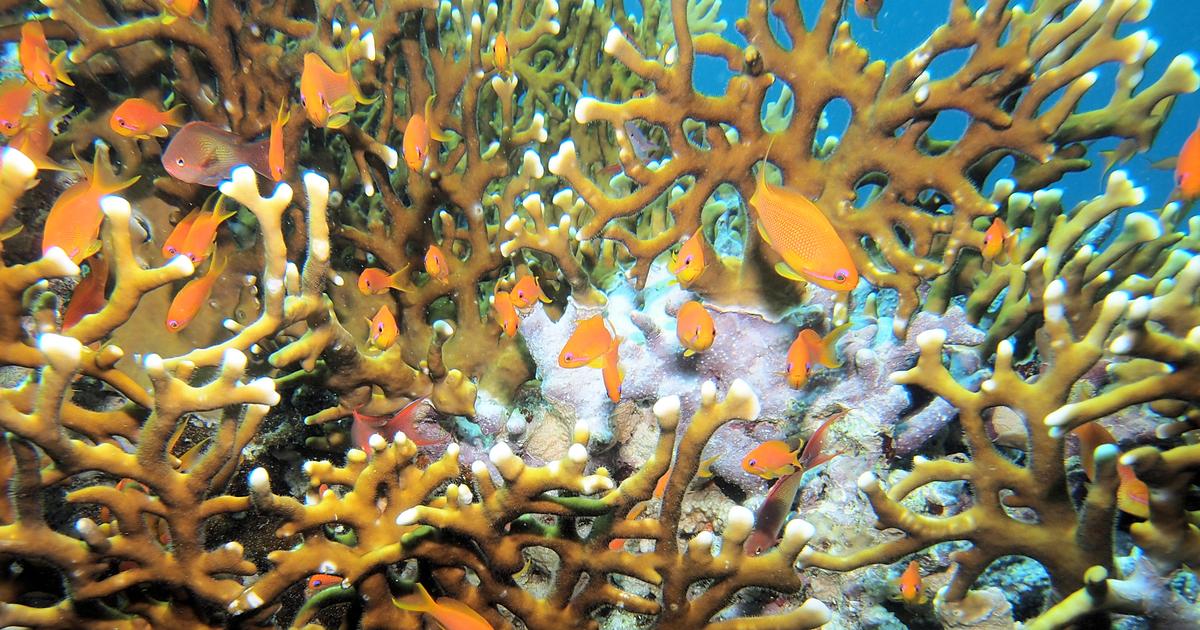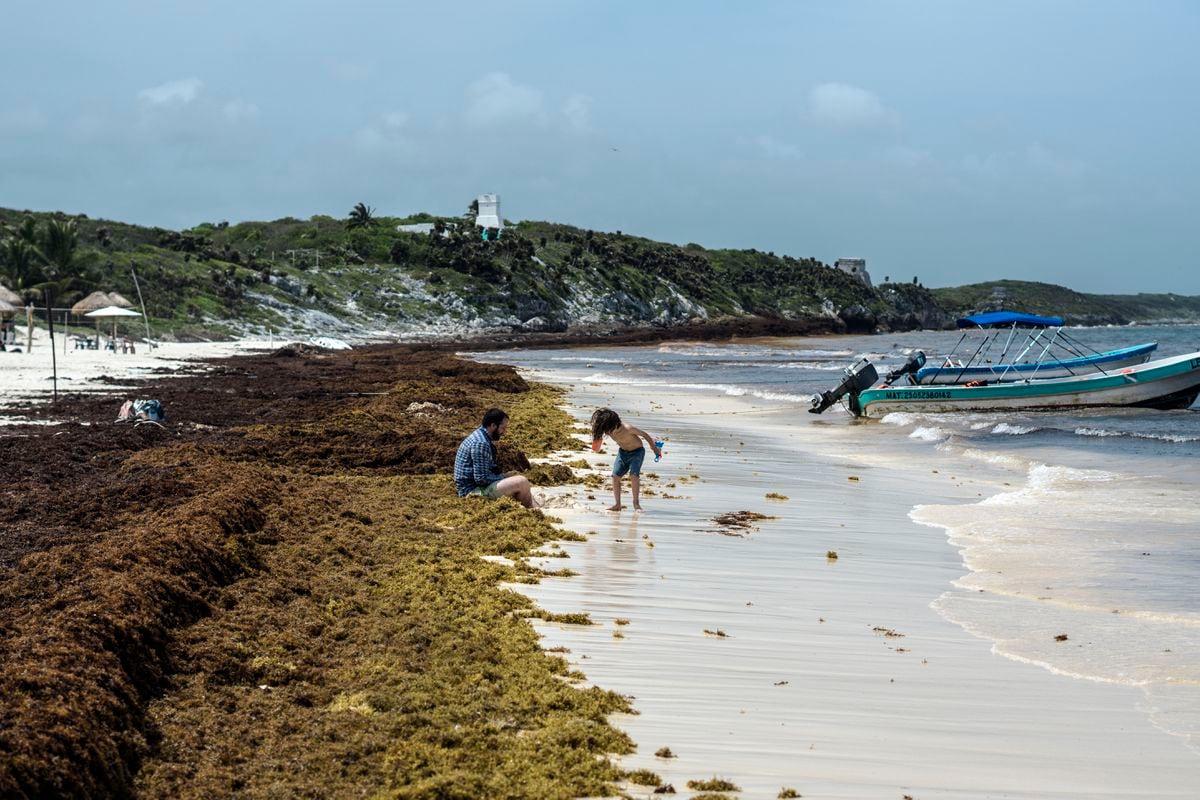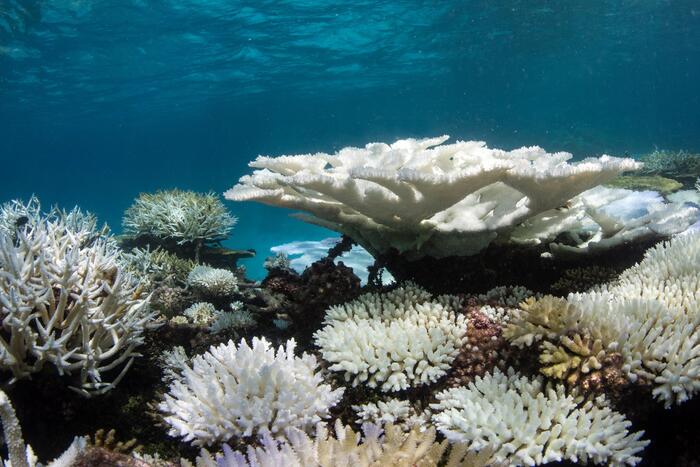Icon: enlarge
Divers at the Greet Barrier Reef: Coral bleaching affects the cnidarians
Photo: Cavan Images / imago images
According to a study, the Great Barrier Reef has lost more than half of its corals in just over two decades.
Corals of almost all groups and of all sizes are affected, researchers report after a systematic inventory in the journal "Proceedings of the Royal Society B".
The Great Barrier Reef is the largest reef in the world and covers an area of more than 344,000 square kilometers.
It's bigger than Italy and can even be seen from space.
Hundreds of islands also belong to the reef.
It has been an official UNESCO World Heritage Site since 1981.
"We always thought the Great Barrier Reef was protected by its sheer size," says Terry Hughes of James Cook University in Townsville, who collaborated on the study.
"But our results show that even the world's largest and relatively well-protected reef system is increasingly weakened and dwindled."
The researchers justify the development primarily with the high water temperatures and the resulting coral bleaching in 2016 and 2017, which mainly affects corals in shallow water.
In addition, storms and crown-of-thorns starfish, which feed on corals, attacked the reefs.
The problem: corals need algae to survive.
These provide them with energy and give them their color.
If the sea water becomes too warm, however, the symbiosis turns into a hostile relationship: the algae then produce more toxins.
The corals repel the algae and lose not only their color but also their most important food source.
If the algae don't settle again within a few weeks or months, the corals will die.
Reefs can hardly recover
In the mid-1990s, the researchers examined five specified sections of the reef off the Australian east coast.
To do this, they documented the number of individual coral colonies on the ridges of the reef and on the slopes down to a depth of seven meters.
They have now compared the data from then with studies from 2016 and 2017.
According to this, the total number of small colonies of corals decreased by 76 percent on the ridges and by an average of 57 percent on the slopes.
The large colonies declined 63 percent on the ridge and 32 percent on the slopes.
The development was most pronounced in the north of the reef up to about the level of the city of Townsville.
In the two northernmost sections, the number of colonies on the coral ridges fell by 88 and 98 percent.
Only in the southernmost of the five sectors - around the level of the city of Gladstone - did the number of coral colonies increase slightly.
The reefs are finding it increasingly difficult to recover because there are hardly any young corals, the researchers report.
"A vibrant coral population has millions of small and many large corals - the large mums that produce the most larvae," said Andreas Dietzel of James Cook University.
According to climate forecasts, practically all coral reefs worldwide could be exposed to bleaching in the coming decades if greenhouse gas emissions do not decrease, the researchers warn.
"The loss of these corals means the loss of a habitat, which in turn reduces the abundance of fish and the productivity of the coral reef fishery," the study said.
It was only in March that it became known that the once colorful reef off Australia's northeast coast was again hit by massive coral bleaching due to warmer sea temperatures - the third in five years.
Icon: The mirror
koe / dpa









